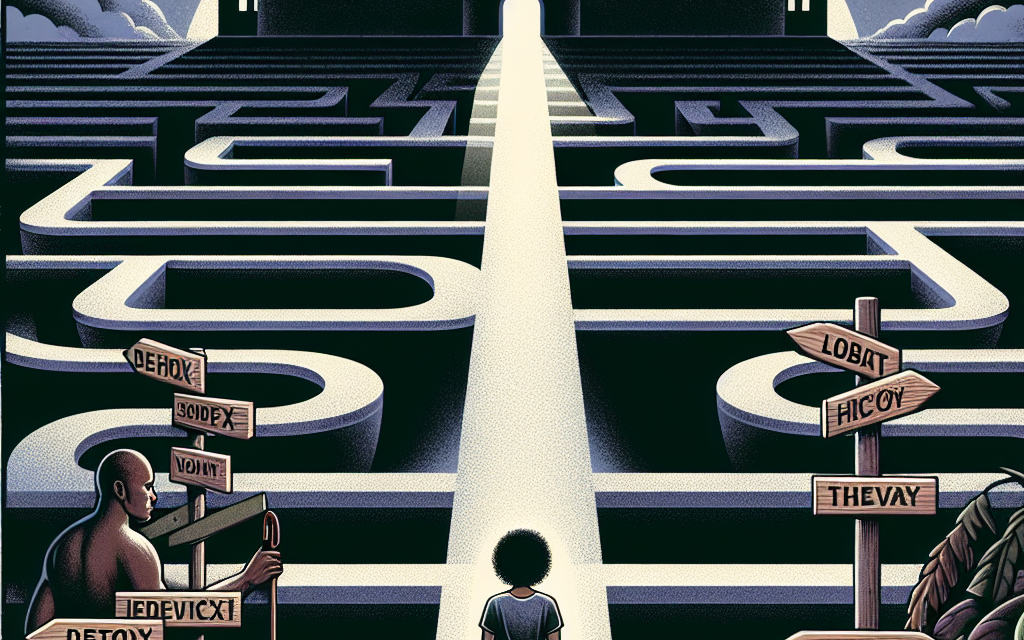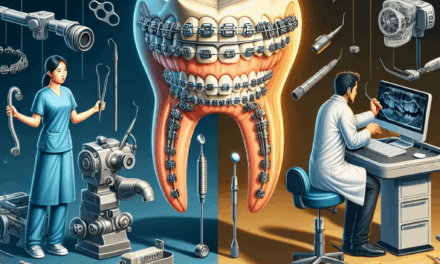Navigating Recovery: The Role of Private Rehab in Sustaining Long-Term Sobriety
Substance use disorders (SUDs) are complex conditions that affect millions of individuals and their families worldwide. Recovery from addiction is a multifaceted journey that often requires professional intervention, support, and a structured environment. Private rehabilitation centers have emerged as a vital component in the recovery landscape, offering tailored programs designed to address the unique needs of individuals seeking sobriety. This article explores the role of private rehab in sustaining long-term sobriety, delving into its benefits, methodologies, and the importance of aftercare.
Understanding Substance Use Disorders
Before delving into the specifics of private rehab, it is essential to understand what substance use disorders are and how they impact individuals and society. SUDs are characterized by an individual’s inability to control their use of substances, leading to significant impairment or distress. The National Institute on Drug Abuse (NIDA) reports that approximately 20.3 million Americans aged 12 and older had a substance use disorder in 2018.
Substance use disorders can manifest in various forms, including alcohol use disorder, opioid addiction, and stimulant use disorders. The consequences of these disorders are profound, affecting not only the individual but also their families, communities, and the healthcare system. The economic burden of substance abuse is staggering, with estimates suggesting that it costs the U.S. economy over $600 billion annually in healthcare, lost productivity, and crime-related expenses.
Understanding the nature of addiction is crucial for developing effective treatment strategies. Addiction is often described as a brain disease, as it alters the brain’s structure and function. This alteration can lead to compulsive behavior, making it challenging for individuals to quit without professional help. The stigma surrounding addiction often prevents individuals from seeking help, further complicating their recovery journey.
The Benefits of Private Rehabilitation Centers
Private rehabilitation centers offer a range of benefits that can significantly enhance the recovery process. These facilities provide a more personalized approach to treatment, often resulting in better outcomes for individuals struggling with addiction. Here are some key advantages of private rehab:
- Individualized Treatment Plans: Private rehabs typically conduct comprehensive assessments to create tailored treatment plans that address the specific needs of each patient. This personalized approach can include a combination of therapy, medication, and holistic treatments.
- Smaller Client-to-Staff Ratios: Many private facilities maintain a lower client-to-staff ratio, allowing for more individualized attention and support. This can foster a stronger therapeutic alliance between clients and their treatment providers.
- Luxurious Amenities: Private rehabs often provide a comfortable and serene environment, which can help reduce stress and promote healing. Amenities may include private rooms, gourmet meals, and recreational activities.
- Access to Specialized Therapies: Many private facilities offer specialized therapies, such as art therapy, equine therapy, and mindfulness practices, which can enhance the recovery experience.
- Confidentiality and Privacy: Private rehabs prioritize client confidentiality, which can be particularly important for individuals concerned about stigma or professional repercussions.
These benefits contribute to a more supportive and effective recovery environment, making private rehab an attractive option for many individuals seeking to overcome addiction.
Evidence-Based Treatment Approaches in Private Rehab
Private rehabilitation centers often employ evidence-based treatment approaches that have been scientifically validated to improve recovery outcomes. These methodologies are crucial in addressing the complex nature of addiction and ensuring that individuals receive the most effective care possible. Some of the most common evidence-based approaches include:
- Cognitive Behavioral Therapy (CBT): CBT is a widely used therapeutic approach that helps individuals identify and change negative thought patterns and behaviors associated with addiction. By addressing these cognitive distortions, clients can develop healthier coping mechanisms.
- Motivational Interviewing (MI): MI is a client-centered counseling style that enhances an individual’s motivation to change. This approach is particularly effective in helping clients explore their ambivalence about recovery and commit to the treatment process.
- Medication-Assisted Treatment (MAT): MAT combines behavioral therapy with medications to treat substance use disorders, particularly for opioid and alcohol addiction. Medications such as methadone, buprenorphine, and naltrexone can help reduce cravings and withdrawal symptoms.
- 12-Step Facilitation Therapy: This approach encourages individuals to engage with 12-step programs like Alcoholics Anonymous (AA) or Narcotics Anonymous (NA). It emphasizes the importance of community support and accountability in the recovery process.
- Family Therapy: Involving family members in the treatment process can be beneficial for both the individual and their loved ones. Family therapy addresses relational dynamics and helps rebuild trust and communication.
By utilizing these evidence-based approaches, private rehab centers can provide clients with the tools and strategies necessary for long-term sobriety. The integration of these methodologies into treatment plans ensures that individuals receive comprehensive care tailored to their unique circumstances.
The Importance of Aftercare in Sustaining Sobriety
Completing a rehabilitation program is a significant milestone, but it is only the beginning of the recovery journey. Aftercare plays a crucial role in sustaining long-term sobriety and preventing relapse. Private rehab centers often emphasize the importance of aftercare planning, which may include:
- Continued Therapy: Ongoing therapy sessions can help individuals maintain their progress and address any challenges that arise post-treatment. This may include individual therapy, group therapy, or family therapy.
- Support Groups: Participation in support groups, such as AA or NA, provides individuals with a sense of community and accountability. These groups offer a safe space for sharing experiences and receiving encouragement from peers.
- Relapse Prevention Strategies: Aftercare programs often include education on recognizing triggers and developing coping strategies to manage cravings and high-risk situations.
- Life Skills Training: Many private rehabs offer life skills training as part of their aftercare programs. This training can help individuals navigate daily challenges, such as employment, relationships, and stress management.
- Regular Check-Ins: Some facilities provide regular check-ins or follow-up appointments to monitor progress and offer support as individuals transition back into their daily lives.
Research indicates that individuals who engage in aftercare services are more likely to maintain their sobriety over the long term. A study published in the Journal of Substance Abuse Treatment found that individuals who participated in aftercare programs had a significantly lower rate of relapse compared to those who did not.
Case Studies: Success Stories from Private Rehab
To illustrate the impact of private rehabilitation centers on long-term sobriety, it is helpful to examine real-life success stories. These case studies highlight the transformative power of tailored treatment and ongoing support.
Case Study 1: Sarah’s Journey
Sarah, a 32-year-old woman, struggled with alcohol addiction for over a decade. After multiple unsuccessful attempts at sobriety, she decided to enter a private rehab facility that offered a comprehensive treatment program. During her stay, Sarah engaged in individual therapy, group therapy, and participated in a 12-step program.
Upon completing her treatment, Sarah was provided with a robust aftercare plan that included weekly therapy sessions and regular attendance at an AA group. Over the next year, Sarah faced several challenges, including job loss and relationship issues. However, with the support of her therapist and peers in recovery, she was able to navigate these obstacles without relapsing. Today, Sarah has been sober for three years and is actively involved in her local recovery community.
Case Study 2: Mark’s Transformation
Mark, a 45-year-old man, battled opioid addiction for years. After experiencing a near-fatal overdose, he recognized the need for change and sought help at a private rehab center specializing in MAT. Mark’s treatment included medication to manage his cravings, along with cognitive behavioral therapy to address underlying issues contributing to his addiction.
Following his discharge, Mark continued with MAT and attended weekly support group meetings. He also participated in life skills training, which helped him secure stable employment. Mark has now been sober for over two years and credits his success to the comprehensive care he received during and after his time in rehab.
These case studies exemplify how private rehabilitation centers can provide the necessary support and resources for individuals to achieve and maintain long-term sobriety. The combination of individualized treatment, evidence-based approaches, and robust aftercare plans can significantly enhance recovery outcomes.
Conclusion: The Path to Lasting Recovery
Navigating recovery from substance use disorders is a challenging journey that requires dedication, support, and effective treatment strategies. Private rehabilitation centers play a crucial role in this process by offering personalized care, evidence-based methodologies, and comprehensive aftercare programs. The benefits of private rehab, including individualized treatment plans, access to specialized therapies, and a focus on aftercare, contribute to improved outcomes for individuals seeking sobriety.
As the stigma surrounding addiction continues to diminish, it is essential for individuals to recognize the importance of seeking help and utilizing the resources available to them. By understanding the role of private rehab in sustaining long-term sobriety, individuals can make informed decisions about their recovery journey and take the necessary steps toward a healthier, more fulfilling life.
In summary, the path to lasting recovery is not a solitary one; it is a journey that requires support, understanding, and effective treatment. Private rehabilitation centers offer a beacon of hope for those struggling with addiction, providing the tools and resources necessary to navigate the complexities of recovery and achieve lasting sobriety.





